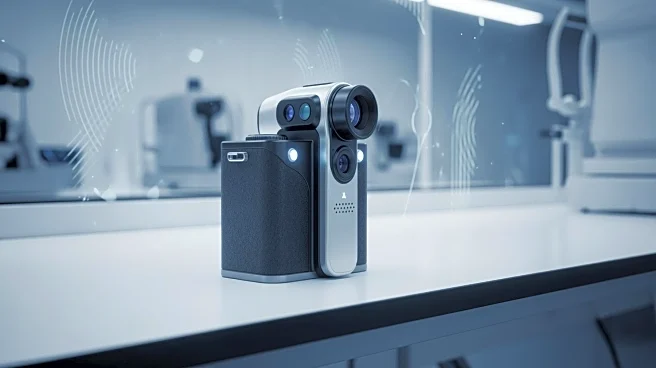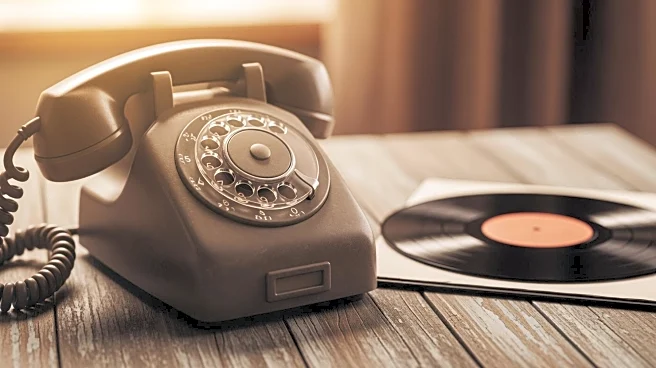What's Happening?
Professor Emmanuel Balogun from Ahmadu Bello University (ABU), Zaria, has led a significant international study validating the Smart Eye Camera (SEC) as an effective, low-cost tool for preventing and treating blindness in Nigeria. The study, conducted
in collaboration with scientists and ophthalmologists from Nigeria and Japan, confirmed that the SEC, a smartphone-mounted diagnostic device developed by OUI Inc., Japan, can replace traditional slit-lamp microscopes used in eye examinations. Published in the journal Eye, the research demonstrated that the SEC achieved up to 96% diagnostic accuracy, comparable to conventional equipment. The device is particularly beneficial for rural and underserved communities, offering real-time telemedicine capabilities and cloud storage for data sharing.
Why It's Important?
The validation of the Smart Eye Camera represents a major advancement in accessible eye care, especially in regions with limited medical resources. With over 1.13 million people blind in Nigeria, primarily in the Northwest, the SEC's affordability and portability could significantly reduce preventable blindness. The device's cost, approximately N1.7 million compared to the N13 million for a standard slit-lamp microscope, makes it a viable option for widespread use. Globally, the SEC could impact over 1.2 billion people suffering from visual impairments, 90% of which are preventable or treatable, potentially revolutionizing eye care in developing nations.
What's Next?
Professor Balogun and his international partners are seeking investment to establish local production of the Smart Eye Camera in Nigeria. This initiative aims to position Nigeria as a leader in Africa's eye-care technology manufacturing sector. The establishment of local production facilities would not only make the SEC more accessible but also stimulate economic growth and technological advancement in the region.
Beyond the Headlines
The development and validation of the Smart Eye Camera highlight the potential for technology to bridge healthcare gaps in underserved areas. The device's ability to facilitate telemedicine and data sharing could lead to broader applications in other medical fields, enhancing healthcare delivery in remote locations. Additionally, the project underscores the importance of international collaboration in addressing global health challenges.















